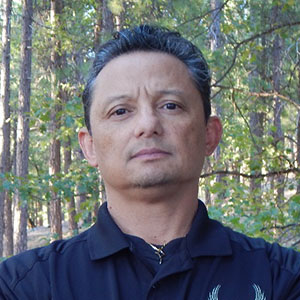
Well, we made it. We are at the final article to close out the “Five factors to increase performance” series. In this final edition, we will discuss how to apply what we have learned and also focus on understanding the “why” behind it all. It is generally understood that the end goal of high-level training is to increase our performance on and off duty. However, there is more to it. So, just like range day … grab your eyes and ears, and let’s do this.
- Speed factors
- Internal factors
- External factors
- Learning factors
- Application factors
Since this article will wrap everything up for the whole series, I am going to introduce three application factors that are infused with an aura of motivation. My goal is to transfer the information with a firm “push” in the direction that is going to benefit your career, livelihood and overall quality of life. And no, this is not a “positive thinking” piece. It is a reality-based, scientifically confirmed and common-sense way to challenge yourself to live out a truly high-performance life as a cop. It is more than just training to survive. I try to avoid using the word survive because it relates to a sense of “barely making it through.” And we do not want to “just barely make it through.” We want to prevail. We want to prevail by a huge margin. Even in difficult circumstances, we want to prevail to the end. I hope you agree with that sentiment.
When these application factors are consistently applied, it can help you rise above the grind every single day. And sometimes, whether we admit it or not, the job is a grind.
When these application factors are consistently applied, they can help you rise above the grind every single day. And sometimes, whether we admit it or not, the job is a grind. There are external influences in this career that can negatively affect the way we think, act and train. So, let’s apply three positive application factors that can help move us through the cloud of negativity toward the peaks of higher performance. Then, we can fight the good fight with a weapon system that can never be taken away, modified or overcome without our expressed permission.
The question is, how are we going to do it? First, we must understand the “why” behind it all. This is our foundation. This is where it all starts. It is not about “what” we are doing, it is about “why” we are doing it. The “what” is the vessel used to get things done and to help us get to where we want to go. But the “why” is the purpose or the source that sustains it. A speaker and entertainer by the name of Michael Jr. said it like this. He said, “Once you know your ‘why,’ your purpose becomes clear, and your ‘what’ will be more impactful.” So, if you are serious about your law enforcement career and want to avoid burnout, bitterness, and, of course, perform at high levels, knowing your “why” is the key.
For example, Armitage Tactical Group’s “why” is simple. “To make sure cops go home safely every night.” This is the rock we stand on. It is the foundation that we have built our business. Our “what” is the training. To get to where we want to go, we train others to the best of our ability. And since we know our “why,” our “what” has made a tremendous impact on the careers and lives of the officers we have trained. Therefore, I challenge you to figure out and write down your “why.” Then, keep it somewhere safe because there will be a time (or times) in your career when you will need to look at it again – I can guarantee it. So, now that we have constructed our foundation, let’s look at the three application factors.
Priming: Psychology Today reports the priming process this way. “The priming process is theorized to occur when mental representations of concepts are activated by a person’s exposure to something that those concepts are related to. This activation influences how the person responds to the concepts — such as by making the response quicker” (bit.ly/3vE1rwI).
In layman’s terms, whatever you repeatedly expose yourself to will influence how you respond to things. This can work negatively in our lives, like with the things we see in the media day after day and by our own personal experiences on the job. But it can also work in our favor when we control some of what we take in, and when. What are you allowing to influence you when you wake up every morning (and throughout the day)? Experience tells me that there is a barrage of negativity from the job and other external influences that have been affecting you in a certain way (as you are reading this, are they starting to pop up in your mind?) If so, do not disregard this training exercise. First, acknowledge the gap, then start taking control of your intake. It starts when you first wake up. Be intentional about the first things you allow into your priming process. When heading to work on your Monday, do you dread the upcoming shift? Or are you rubbing your hands together with a smirk that says, “Bring it on.” We all know the “crusty” old range guy or the “pissed off” sergeant. They are definitely not rubbing their hands together, looking forward to the upcoming shift. And I am willing to bet they wake up that way every morning. I am not sure people like that ever realize they can live differently. It is the process of priming that establishes how officers work and train for today, tomorrow and beyond. Therefore, start controlling your priming process and manipulate your intake to support a career of high performance.
Pattern of focus: Identify patterns. We all create patterns that affect our performance. Once you identify your specific performance patterns, do an assessment, and then make the necessary modifications. Or, if those patterns produce high-performance growth, then solidify them.
There is something called the reticular activating system (RAS) located in the stem of the brain. The RAS determines what you notice. “The ascending projections of the reticular activating system enhance the attentive state of the cortex and facilitate conscious perception of sensory stimuli” (bit.ly/3vvT9qq).
Again, in non-psychobabble speak, we have the ability to notice minute things within and around us with tremendous focus. Some of these minute things include our heartbeat, eyelid blinking and the breaths we take. But, for the most part, we choose not to focus on those things. Did you know we can take up to 28,800 breaths per day (bit.ly/48Pr0ZQ)?
How many of those breaths do we actually notice? We train ourselves to delete those things from our perception because we do not think it is necessary to focus on those bodily functions. It is easy to forget things that do not provide resistance. Those autonomic nervous system functions are extremely important but are designed to run without conscious exertion. It is meant to sustain, not necessarily to build. However, when we start adding resistance, those autonomic functions catch our attention immediately. When we run an all-out sprint, our breathing and heartbeat are substantially more noticeable, and we begin to focus on it. This is all to say that we must start focusing our attention on things and patterns that are meant to build, not sustain. It is common knowledge that if we do not foster a particular skill, we will eventually lose that skill. As a matter of fact, the Commission on POST in California has a program that is dedicated to this exact category of training. It is called the Perishable Skills Program. So, be intentional about creating patterns of focus that benefit your training and career goals. Then, be diligent with consistent application.
Resistance then momentum: As mentioned earlier, identify your specific performance patterns. Once you have done that, ensure that these patterns have some type of resistance built into them. Remember, the path of least resistance never builds. It is always easier to apply, but only supports stagnation or deterioration. Create patterns that contain resistors. Resistance builds, strengthens and increases, which directly correlates to growth. Our natural tendency is to avoid resistance because there is less effort involved, but it also turns out to be less effective. If you do what is hard over and over, the hard thing eventually becomes easy. And when a previously hard action becomes easy, it translates to hash marks in the win column. From there, consistent wins create momentum. Momentum helps to convince your mind that the action can now be done without much struggle and generates a new experience. This is where we want to be. Continually gaining momentum as we work through resistance, reaching new levels that we never thought were possible.
And there we have it, a brief breakdown of the application factors. This was the final installment of the “Five factors that influence performance.” I hope you can eventually implement all the factors in your life’s regimen to achieve an increase in your performance. Thank you for continuing to allow me to relay my thoughts in print and online. If you have any questions, please get in touch. Until then, #staysafe and #stayready.
As seen in the February 2024 issue of American Police Beat magazine.
Don’t miss out on another issue today! Click below:






